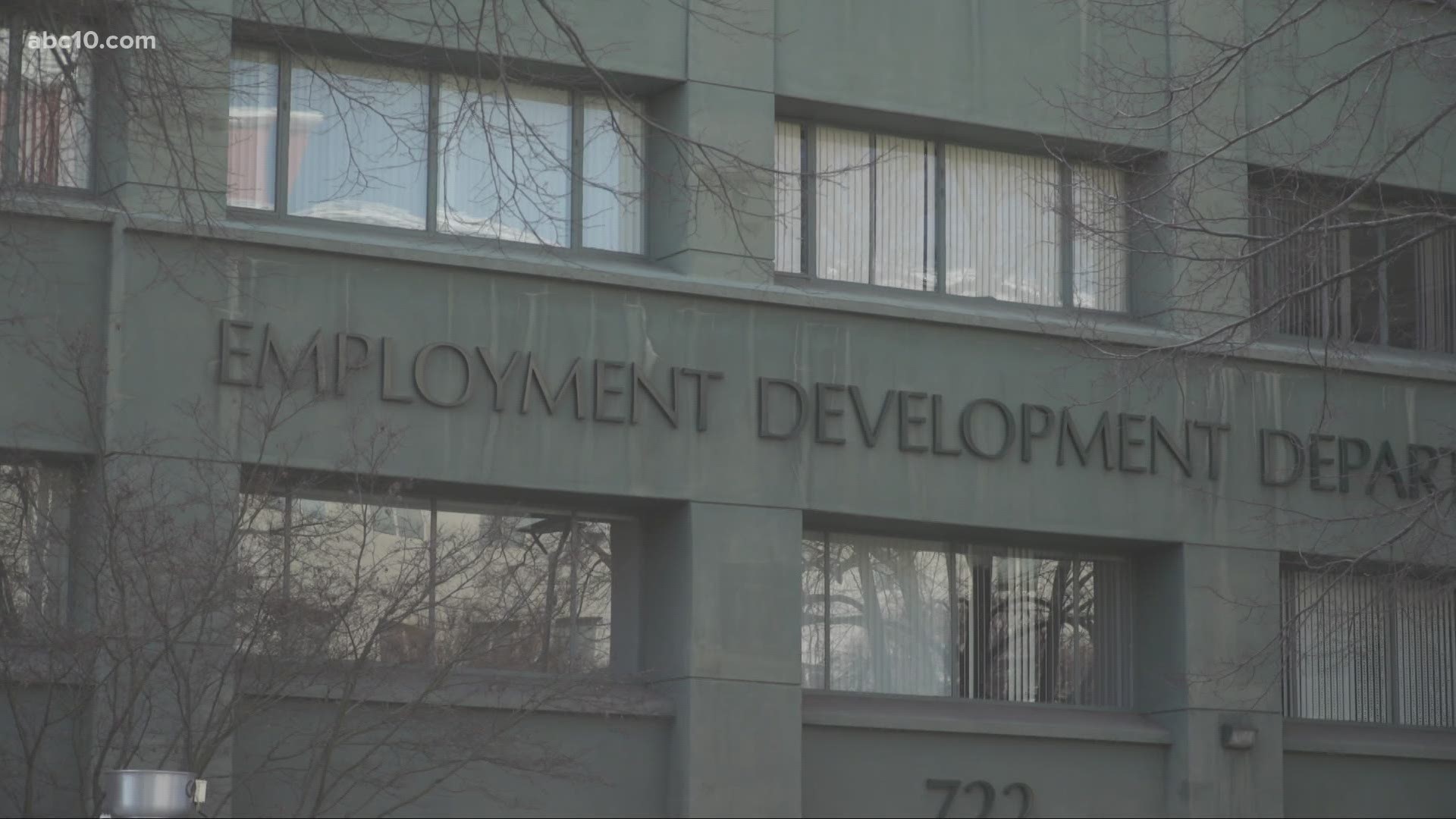SACRAMENTO, Calif. — An effort to fix the problems at California's Employment Development Department went to the Senate Labor Committee on Monday.
At the bill's core, there are three elements: implementing the recommendations of the state auditor, preparing for economic downturns, and improving fraud prevention efforts.
SB-232, authored by Senator Jim Nielsen (R-Red Bluff) suggests some of the ways to get there.
The senator's bill deals with giving certain timelines to EDD for troubleshooting and improving claim processing and fraud prevention. The end goal is to make sure customer service is efficient and benefit payments stay timely.
Nielsen said more than a million of Californians are still waiting on benefits from EDD and cited a state auditor investigation that found “poor plans and ineffective management” at EDD. He also noted that EDD’s fraud prevention approach led to billions of dollars in improper benefit payments and that fundamental changes have yet to happen.
After being overwhelmed with calls from people struggling to get their benefits, Nielsen wants to make sure the problems never happen again.
“I’ve never seen a debacle of this magnitude or this many people harmed, purposefully harmed, not just negligence and stupidity but purposefully ignored by their government and it makes me angry," he said.
Among millions hurt was La Toya Horne, owner of La'Horne The Salon in Sacramento's Pavilions shopping center. She went weeks without payments after filing for unemployment last March.
“It was weeks were going by and I wasn’t hearing anything," Horne said.
She learned that someone was getting her mail at a place she lived at more than 10 years ago. Horne said she spent months getting the runaround from EDD call centers because they had the wrong address.
“Every time I called in, I would get through, I would speak with someone for maybe a couple of seconds, and their phone would completely cut me off. I would be back to square one all over again," she said.
When she finally started getting her funds in September, it was too late.
"I wasn't granted the funds due to me until after I had to already move out of my place," Horne said.
Nielsen's bill would try to prevent similar stories and hold the EDD accountable in new ways. Many of the bill’s requests tie in with recommendations from Governor Gavin Newsom's EDD strike team and Bureau of State Audits, which include a focus on using data to monitor claimant experience and remedy bottlenecks for claims processing. Other elements include tracking for claimants, using data to improve fraud detection, and centralizing fraud prevention efforts to improve coordination.
If passed, it would set deadlines for the EDD to make some major fixes to both their IT system and their call centers, including providing monthly reviews to evaluate if the department is actually helping callers.
“It has got to be statutory so they are required and accountable and then we have to be able to follow up. We must follow up to make sure it gets done," Nielsen said.
It would also require the department to come up with a recession plan, accounting for lessons learned during the pandemic and other economic downturns, and update it every three years.
“There was no planning for recessions that spikes like this particular one here. Now, maybe, this is very unusual in this magnitude, but spikes always happen, they’ve never been prepared for it,"Nielsen said.
In its current state, the bill would also include these requirements to help fix some of the problems at EDD:
- Find elements of the Benefit Modernization System IT project, or BSM, that will help make payments more timely and that can also be implemented incrementally
- Implement a formal policy that establishes a process for tracking and analyzing why unemployment insurance claimants are calling in for help
- Analyze the data mentioned above to improve the call center
- Assess how effective call center operations are, which could include tracking and monitoring first-call resolution rates
- Create model workload projections for possible scenarios that could cause a sudden increase in unemployment insurance claims
- Make a recession plan accounting for the lessons learned during the COVID pandemic
- Make a plan for assessing their fraud prevention and detection tools
- Designate an exclusive unit for coordinating all unemployment insurance fraud prevention and detection
To read the full bill, click HERE.
RELATED:
WATCH ALSO: UC, CSU planning mandatory COVID-19 vaccinations for faculty, staff and students return to campus

















